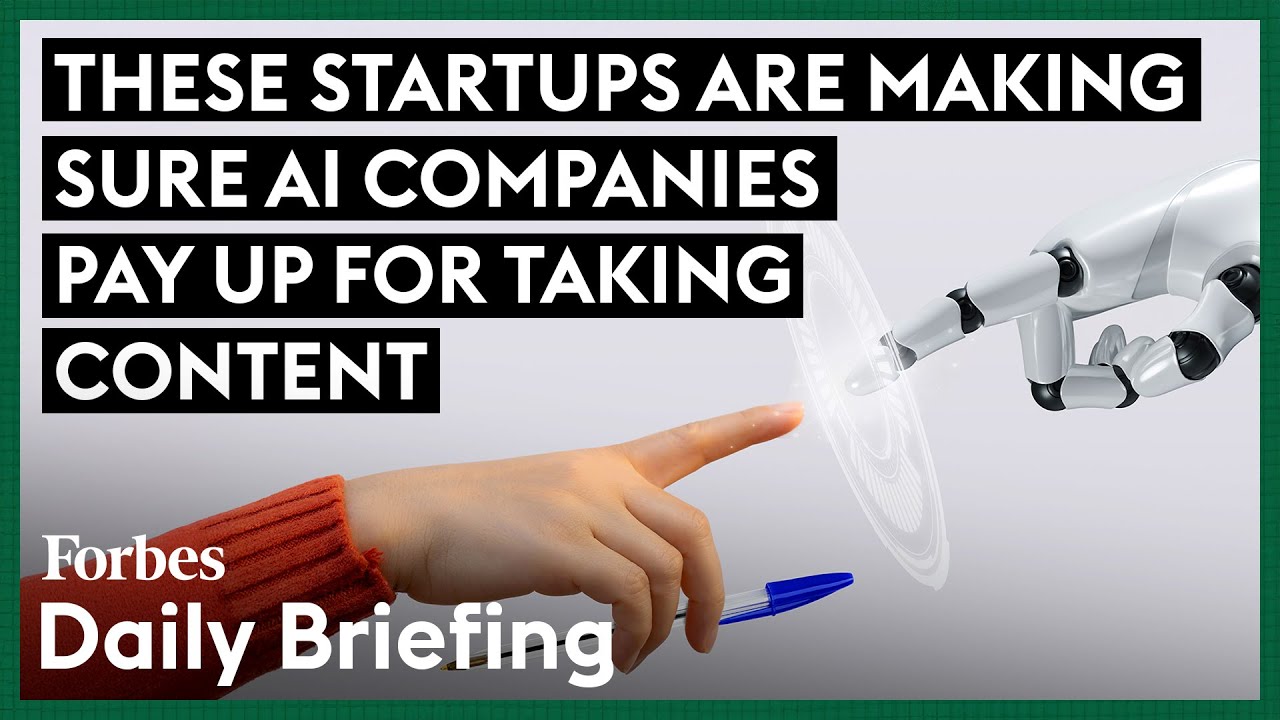The video highlights the rise of startups acting as intermediaries between content publishers and AI companies, providing solutions to ensure publishers are compensated for their content used by AI systems, such as Tobit’s digital toll booth model and Prata’s compensation technology. As publishers face challenges from unauthorized scraping, these companies are gaining traction and attracting investment, while industry leaders discuss the need for innovative payment structures for content creators.
The video discusses the emerging role of startups that act as intermediaries between content publishers and AI companies, particularly in light of the challenges publishers face with AI scraping their content. Publishers have traditionally had two options: either sue for copyright infringement or negotiate one-off licensing deals. However, a new class of companies is offering a third option, which aims to ensure that publishers receive compensation when their content is used or referenced by AI systems.
One notable startup mentioned is Tobit, which functions like a digital toll booth, charging AI companies each time they scrape a publisher’s content. Another company, Prata, is developing technology that allows AI firms to compensate publishers based on the extent of their content’s presence in AI-generated outputs. Additionally, Scale Post is working on creating a library of licensed content that AI companies can access for a fee. These startups are responding to the increasing concerns of publishers about losing traffic and revenue due to unauthorized scraping by AI models.
The stakes are high for publishers, as major AI companies like OpenAI and Anthropic have been known to ignore protocols meant to prevent web scraping. This has led to high-profile lawsuits from organizations such as The New York Times and Dow Jones, which argue that such scraping violates copyright laws. In contrast, some media companies have opted to partner with AI firms, with OpenAI reportedly paying Meredith Corporation $16 million annually for content licensing, while Thomson Reuters has generated $33 million in revenue from similar deals.
As AI systems evolve to ingest content in real-time, publishers are increasingly worried about the impact on their revenue-generating traffic. Buran Hamid, CTO of Time, highlighted the struggles publishers face and the need to find ways to monetize their content effectively. With around 400 firms, including Adweek and Hurst Corporation, signing up for Tobit’s services, there is a growing recognition of the need for new economic models that allow creators to benefit from their work in the AI landscape.
AI leaders like OpenAI’s Sam Altman and Google’s Sundar Pichai have acknowledged the necessity for innovative payment structures for content creators. Altman suggested exploring micro-payments as a potential solution, while Pichai envisioned a future marketplace where creators could be compensated for their contributions to AI models. Tobit provides a platform for AI companies to access licensed content while offering publishers data analytics on scraping activity and implementing a “bot paywall” to deter unauthorized access. Despite the small investor interest in this intermediary space compared to the broader AI startup ecosystem, companies like Tobit and Prata are gaining traction and raising significant venture capital.
